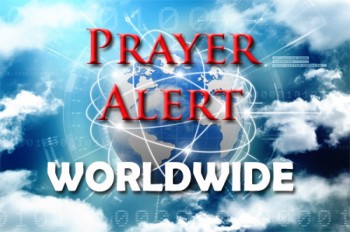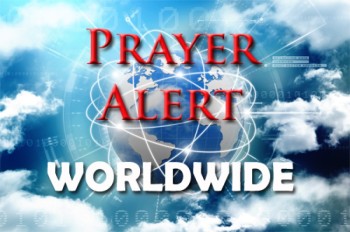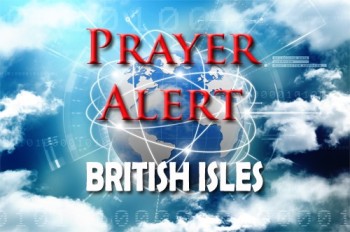Displaying items by tag: poverty
Sri Lanka: Helping church survive crisis
Sri Lanka’s clergy are struggling to survive during the country’s state of emergency. Aid to the Church in Need (ACN) is providing £390,000 in vital support for priests and churches struggling during the unprecedented economic crisis. It will provide priests with a basic income and subsistence aid for catechists, Sisters and other members of religious orders carrying out essential pastoral work. Bishop Valence Mendis said the local Church is struggling to cover its own costs and finding it difficult to relieve the suffering of everyone turning to them for help. He said, ‘People can afford virtually nothing.’ Bishop Mendia said, ‘The economic situation is very serious. Many are going without medicine and food. People have died in queues while waiting to buy basic goods. Many have lost their jobs, and prices have risen astronomically.’ Inflation soared above 54% last month, food prices are now 80% higher than this time last year.
Asia: Poverty
One of the root causes of poverty in Asia is corruption that diverts resources from the poor to the rich in a culture of bribes. Corruption and bribery are two sides of the same coin. Another root cause of Asian poverty is recurring natural disasters - floods, typhoons, volcanic eruptions, landslides, etc. ‘Asian countries are mostly dependent upon agriculture, forestry and tourism. All can all be affected by natural disasters. Education is affected by poverty because poor people stop going to school to work; leaving them without literacy and numeracy skills needed for a career. Poor people tend to believe not only that they are poor, but that they will remain poor, leading to psychological poverty - an unhealthy frame of mind that is usually self-inflicted. Spiritual poverty occurs when people’s incompleteness and dependency overwhelms them. In their brokenness they feel that something is wrong within themselves. They need God. Ask God to brood over and touch the impoverished Asian.
Africa: Financial trials
Ghana has previously refused to seek help from the International Monetary Fund (IMF) to support its crippled economy. However, they will now be making a U-turn and asking the IMF to rescue them from poverty inflicted by the pandemic and inflation. Sierra Leone has launched a redenominated currency to strengthen its value. However, critics and the opposi¬tion say the redenomination of the leone is confusing and adds no value. Uganda opposition figure Besigye was released on bail after being detained in the capital Kampala for two weeks for leading protests against sky-rocketing consumer prices. See The pandemic and the Russia-Ukraine war could leave a lasting financial impression for a decade. 30 million Africans experienced extreme poverty in 2021 and 22 million jobs were lost in the same year due to the pandemic. The trend is expected to continue until 2023. The economic disruptions from the Ukraine war could push a further 1.8 million Africans into extreme poverty this year.
Sri Lanka: People flee the bankrupt nation
Sri Lanka will soon have 60% inflation. The Prime Minister said the nation is bankrupt and he does not expect a bailout from the International Monetary Fund. He believes he can turn the economy around, but 2023 will be tough with improvements in 2024. People queue for days to get fuel. Sadly a man who had lived in his car for five days queuing for gas died in his car and no one realised it. Things became this bad due to political mismanagement and corruption. As food, fuel, and medicine prices increase, people are escaping by boat to India or Australia. In India, people are kept in refugee camps. Rulers have mismanaged Sri Lanka for 10 to 15 years and borrowed money from China, but up to 30% of it never reached its purpose. People have lost faith in the government and their traditional religions. Meanwhile, Christians meet to pray for economic and spiritual revivals.
Lebanon: financial, political and spiritual crisis
The World Bank has extended another year of financial aid to Lebanon despite political bickering. Inflation reached 206% in April, Lebanon’s currency dropped yet again last week, and Heart for Lebanon reports shortages of everything from electricity to fuel to bread. Everything costs more, and 78% of the population needs some kind of food assistance to survive. They are becoming more desperate every day. Divisions are deepening among the newly-elected parliament members. Fighting between parties that are for and against Hezbollah is taking priority over much-needed reform. People are looking for answers. They are turning to God in record numbers. Heart for Lebanon and local churches provide food and encouragement to families, showing them the love of Christ before telling them about the love of Christ. Ask God to strengthen and encourage Lebanese believers. They are staying put to care for people in need, instead of leaving the country to benefit themselves.
Inflation to hit poorest households the hardest
Britain’s poorest households are expected to see a huge increase in their living costs when energy bills rise this autumn, leading economists have warned. The Institute for Fiscal Studies (IFS) said the fresh surge in gas and electricity bills expected in October could lead to average annual inflation rates of as high as 14% for the poorest tenth of households. The increase in the energy price cap to close to £2,800 is likely to hit poorer families disproportionately because a larger share of their total spending goes on energy. The IFS said the poorest tenth of households typically spend almost three times as much of their budgets on gas and electricity as the richest 10% do.' The Government has responded by announcing specific financial support for low-income households and pensioners, and wider support for all households to pay their energy bills, funded by a windfall tax on energy companies.
Foodbank users can’t cook properly, says MP
Tory MP Lee Anderson has said that poor people use foodbanks because they cannot cook properly; they haven’t got the skills to budget appropriately or do a proper weekly shop, ‘like we did back in the day’. Mr Anderson said he was not ‘being a nasty Tory.’ ‘The point I was making was that there are a lot of people out there who with the right help, the right support, and the right education, would be able to fend for themselves.’ The Trussell Trust foodbank network said, ‘Foodbank need in the UK is about lack of income, not food.’ Mr Anderson’s expenses claim last year was £220,000. The Independent Food Aid Network wrote to the chancellor warning they are close to ‘breaking point’ after an unsustainable surge in demand due to the cost of living crisis.
Kenya: another tragedy - armyworms
Kenya is in a world of hurt. Joy Mueller of Kenya Hope says, ‘They look at having no food to feed their families and no money to pay school fees or buy the things they need. For the third year in a row, these poor people are just devastated. First, the pandemic locked everything down, so rural Kenyans couldn’t buy supplies or sell their livestock at the market. Then right on the heels of the pandemic, they got hit with a severe drought. All the water sources dried up; pastureland was gone and animals were dying. For the people here, their animals are their bank accounts. 2022 seemed to be the start of something better when they got some beautiful rain in February. Hope sprang again, but then they were hit by African armyworms. They’re called armyworms because they march across the field eating every green thing in their path.’
Spring statement as cost of living soars
Rishi Sunak delivered his mini-Budget against a backdrop of rising fuel, energy and food costs. He cut fuel duty by 5p but resisted calls to scrap April's National Insurance rise of 1.25p in the pound; instead the start threshold will rise from £9,600 to £12,570. He warned the UK's post-pandemic recovery has been blown off course by the war in Ukraine, but he promised an income tax cut in 2024 when the economy would be in better shape. The Office for Budget Responsibility painted a bleak picture of the immediate prospects, saying that living standards are set to take the biggest hit since records began in the 1950s. It said inflation was set to peak at 8.7% at the end of this year and this - combined with rising taxes - will ‘weigh heavily on living standards in the coming twelve months’. The UK's tax burden will be the highest level since the 1940s.
Loan sharks and cost of living crisis
Price increases are making it tougher for households to make ends meet, and unlicensed lenders offer loans to the desperate at astronomical interest rates. Last year the Centre for Social Justice (CSJ) researched 3,363 people. One in forty were borrowing from unlicensed lenders. CSJ thinks there are about a million people in England doing this. ‘Overwhelmingly, people borrow when they're desperate. For everyday costs of living, like a gas or electricity bill, or a pram, and then they get exploited by those seeking to extort them for as much money as they can get out of them, offering arbitrary terms, little to no paperwork and an extortionate repayment rate.’ ‘It's just endless,’ one victim said: 'I went from a £150 loan to owing £6,000 in months'. The CSJ report highlights separate data from 1,252 victims, questioned last year by the Illegal Money Lending Team, which prosecutes loan sharks in England. The figures suggest the borrowers are among the poorest in society.









